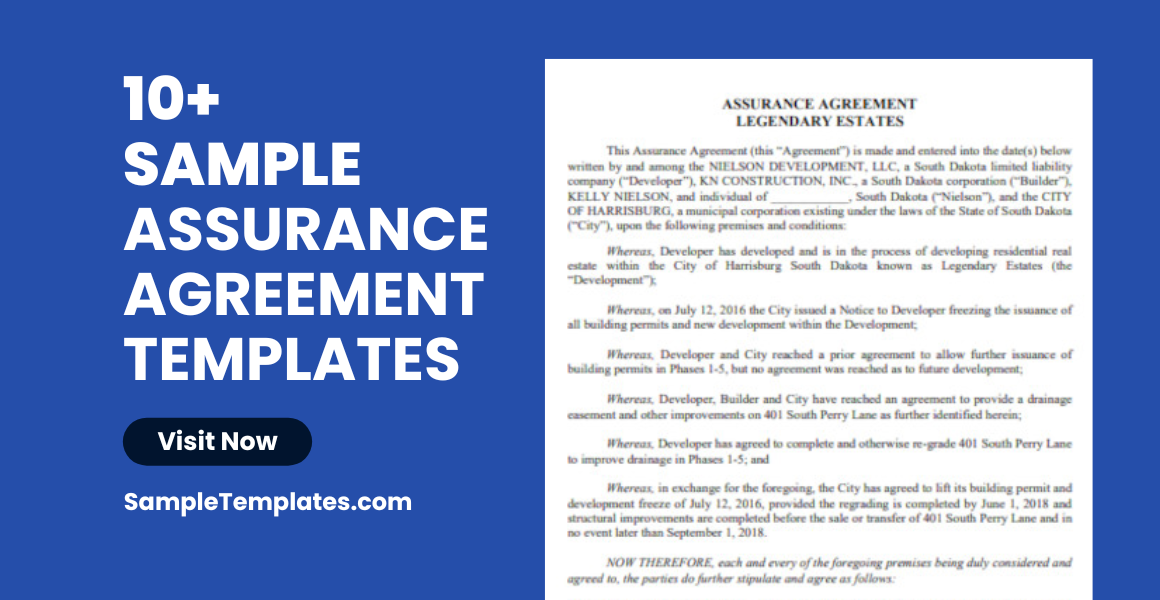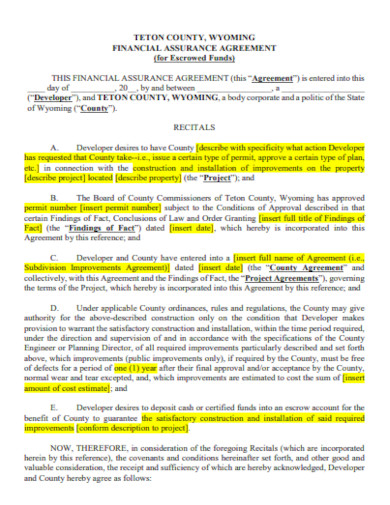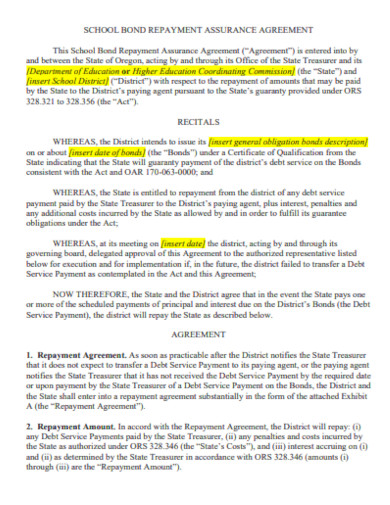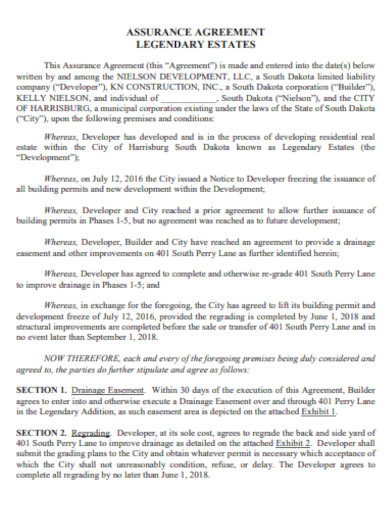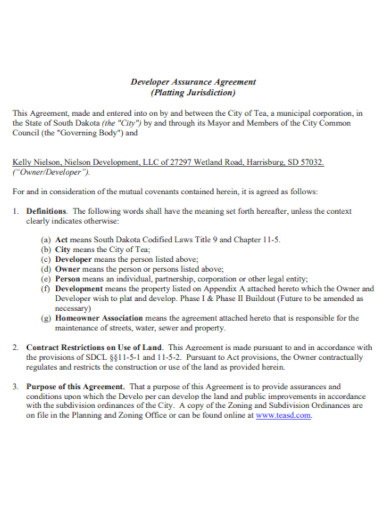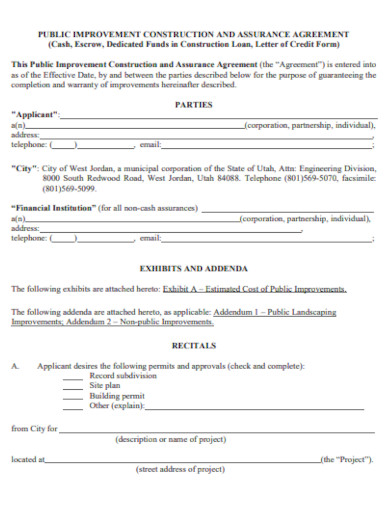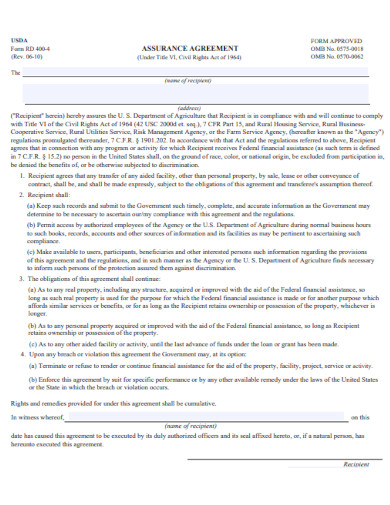10+ Assurance Agreement Samples
1. Sample Completion Assurance Agreement Template
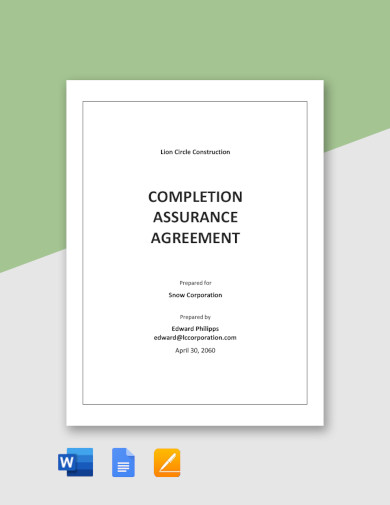
2. Sample Software Assurance Agreement Template
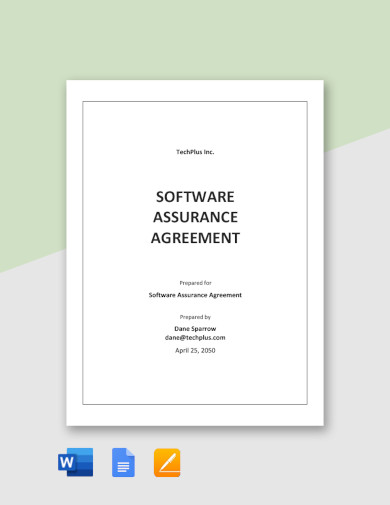
3. Sample Trade Assurance Agreement Template
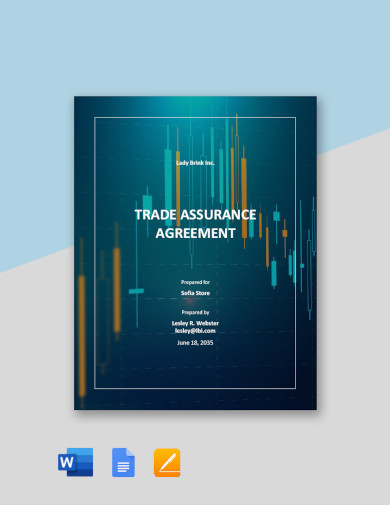
4. Sample Assurance Maintenance Agreement Template
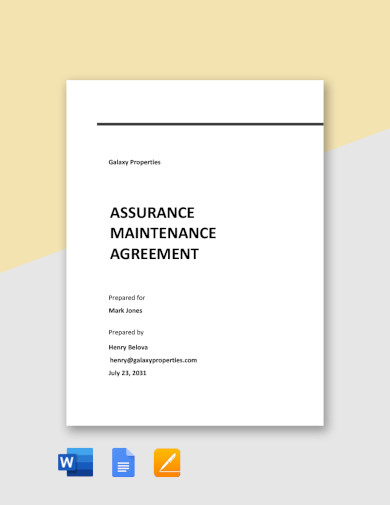
5. Sample Supplier Quality Assurance Agreement Template
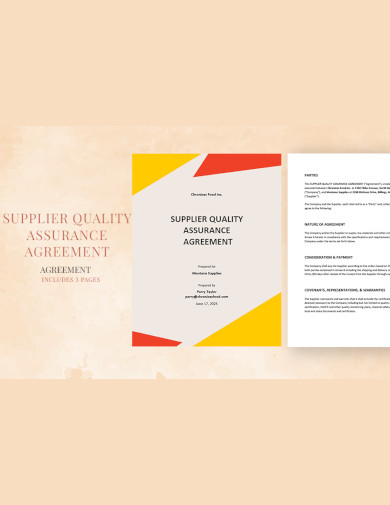
What is an Assurance Agreement?
An assurance agreement is a legally binding contract that provides a guarantee or promise regarding certain conditions or events. It is often used in various business and legal contexts to ensure that specific obligations or standards are met. This type of agreement is crucial in instilling confidence among parties in a transaction, project, or any other arrangement.
Understanding the Essence of Assurance Agreements
Assurance agreements play a pivotal role in business transactions, providing a safety net and ensuring that all parties adhere to agreed-upon standards or conditions. These sample agreements can vary in form and content but generally include elements such as:
- Guarantee of Quality or Performance: Often used in manufacturing or service delivery, assuring the quality or performance level of products or services.
- Compliance with Regulations: Assuring that the practices, products, or services comply with specific regulatory standards or legal requirements.
- Financial Assurances: In financial contexts, these format agreements might guarantee payment, investment returns, or other financial obligations.
Key Components of an Assurance Agreement
A well-structured assurance agreement typically includes:
- Parties Involved: Clearly identifying all parties bound by the agreement.
- Scope of Assurance: Detailing the specific assurances or guarantees provided.
- Duration: Stating the time frame for which the assurance is valid.
- Conditions and Limitations: Outlining any conditions under which the assurance is applicable and any limitations to the assurance. You can also see more templates like Maintenance Agreement Samples.
- Remedies and Penalties: Specifying consequences or remedies in case of a breach of the agreement.
Real-World Applications of Assurance Agreements
Assurance agreements find their application in various sectors:
- Construction and Real Estate: Guaranteeing the quality of materials and workmanship in construction projects.
- Technology and Software Development: Assuring the performance and reliability of software products.
- Environmental Compliance: Assuring adherence to environmental standards and regulations.
- International Trade: Providing assurances in cross-border transactions to mitigate risks associated with different legal systems.
Drafting an Effective Assurance Agreement
To draft an effective assurance agreement, it is essential to:
- Clearly Define Terms: Ensure all terms are clearly defined and understood by all parties.
- Detail the Scope of Assurance: Be specific about what is being assured and under what conditions.
- Include Dispute Resolution Mechanisms: Outline how disputes related to the agreement will be resolved.
- Seek Legal Expertise: Consult with legal professionals to ensure the agreement is enforceable and complies with relevant laws and regulations.
6. Sample Financial Assurance Agreement Template
7. Sample Repayment Assurance Agreement Template
8. Sample Assurance Agreement Template
9. Sample Developer Assurance Agreement Template
10. Sample Construction Assurance Agreement Template
11. Sample Assurance Agreement Form Template
What is Quality Assurance Agreement?
Why are Assurance Agreements Important?
They are important for ensuring that all parties involved in a transaction adhere to agreed-upon standards, providing security and trust in business dealings.
What Types of Assurance Can Be Included?
Assurances can include quality of goods or services, compliance with regulations, financial guarantees, and other performance-related guarantees.
How Do Assurance Agreements Mitigate Risk?
They mitigate risk by clearly defining the standards and obligations expected from each party, reducing the likelihood of disputes and misunderstandings.
How Long Do Assurance Agreements Last?
The duration of an assurance agreement depends on its terms and can vary from a one-time transaction to a long-term arrangement.
In conclusion, assurance agreements are vital tools in the business world, providing security and confidence in various transactions and operations. By clearly defining the terms and conditions of an agreement, they help in mitigating risks and ensuring that all parties fulfill their obligations as promised. Whether it’s a matter of quality, compliance, or financial security, an assurance agreement can be a key element in safeguarding interests and fostering trust in professional relationships. You can also see more templates like Acquisition Agreement Samples.
Related Posts
Sample Excuse Letter for School
Feature Writing Samples
FREE 10+ Security Guard Contract Samples in PDF | MS Word
FREE 26+ Curriculum Form Samples in MS Word | PDF
FREE 20+ Cleaning Service Proposal Samples in PDF | MS Word
FREE 29+ Sample Loan Application Form Templates in MS Word | PDF
FREE 10+ Event Venue Contract Samples in PDF | MS Word | Pages | Google Docs
FREE 10+ SBAR Samples in PDF | DOC
FREE 12+ Music Band Contract Templates in PDF | MS Word
FREE 10+ HVAC Maintenance Contract Samples in PDF | MS Word
FREE 10+ Social Media Marketing Contract Samples in MS Word | PDF
FREE 10+ Wholesale Assignment Contract Samples in PDF
FREE 18+ Financial Proposal Samples in PDF | MS Word | Google Docs | Pages
FREE 10+ Feasibility Study Samples in PDF
FREE 20+ Readiness Checklist Samples in PDF
